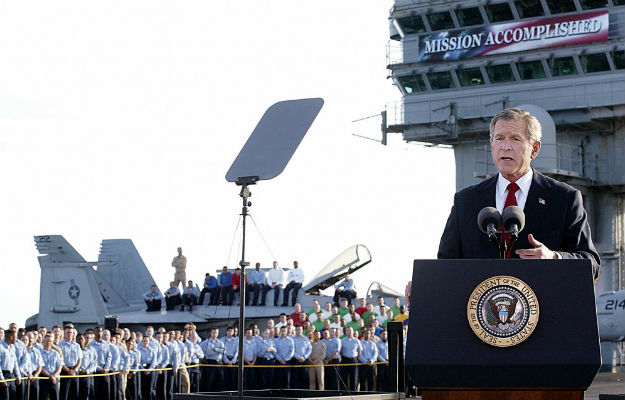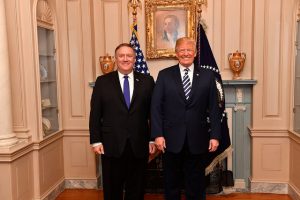by Jim Lobe
Jackson Diehl, the deputy editorial page editor at the Washington Post who also writes a weekly foreign affairs column, generally stands at the intersection of neo-conservatism and liberal interventionism and, in my view, holds a lot of the responsibility for the paper’s neo-conservative editorial drift over the past decade. Of course, it was neo-conservatives, combined with aggressive nationalists like Dick Cheney and Donald Rumsfeld and Christian Zionists (who tend to defer to neo-cons on foreign policy), who led the march to war in Iraq. But too many liberal interventionists also championed the war and helped provide the ideological cover for Democratic members of Congress who should have known better, to rally behind it. In any case, Diehl, in many ways a classic liberal in his strong support for civil and political rights and general disdain or disregard for economic and social rights (see any of his prolific and often obsessive editorials and columns on Latin America, especially on Hugo Chavez or other populist leaders in the region), has moved the Post’s editorial line ever closer to that of the Wall Street Journal, which, as many have observed, has a habit of ignoring its own generally solid news reporting in favor of its hard-line neo-conservative foreign policy agenda.
Since Syria’s civil war began in earnest nearly two years ago, Diehl has been especially outspoken in favor of US intervention (albeit, of course, not with “boots on the ground.”). On Monday, he used the tenth anniversary of the Iraq invasion to add yet another outraged column about the failure of the Obama administration to do more to support the rebels and thus — presto! — end the conflict. The column headline (in the print edition) told the story: “Lessons from Iraq …and why that war shouldn’t stop us from aiding Syria.” Its conclusion:
“The problem here is not that advocates of the Iraq invasion have failed to learn its lessons. It is that opponents of that war, starting with Obama, have learned the wrong ones.”
The column bears close reading, and you can find what lessons Diehl, who admitted outright that he had supported the war and that it “hasn’t turned out, so far, as we war supporters hoped” [emphasis added], extracted from that debacle and how they purportedly do or don’t apply to Syria. I found the column extremely aggravating. Among its more startling assertions: “In Iraq, the United States faced down al Qaeda and eventually dealt it a decisive defeat” — a particularly ironic notion, not only because al Qaeda wasn’t in Iraq when US troops arrived there, but also because of its recent resurgence in apparently close collaboration with the Nusra Front in Syria.
Fortunately, however, I don’t have to respond in detail. Two former senior CIA intelligence analysts apparently also felt sufficiently provoked by Diehl’s misreading of history to do so themselves. Paul Pillar, who served as the National Intelligence Officer for the Near East and South Asia from 2000 to 2005, devoted a characteristically devastating point-by-point critique of Diehl’s analysis appropriately entitled “Unlearned Lessons and the Syrian Civil War.” It’s well worth a read.
Then Nada Bako, a former CIA analyst who served on the team charged with analyzing the purported relationship between Iraq, al Qaeda and the 9/11 attacks, and was the chief targeting officer following Abu Musab al-Zarqawi, the Jordanian-born head of al Qaeda in Mesopotamia until his targeted killing in a US bombing run in 2006, also decided enough was enough. Her article, “Humility Now! The Miseducation of Jackson Diehl,” was published on the Foreign Policy website. I especially appreciated her conclusion, given the enduring fantasies held by neo-cons and liberals hawks like Diehl about Washington’s — and especially its military’s — ability to positively transform extremely complex societies with internal dynamics that we know so little about it:
The argument that unleashing the U.S. military industrial complex can bring about desired results during a conflict should have been deflated, beaten, and buried by now. The winner of the Iraq War was humility, and it is a prerequisite for a wiser foreign policy. That’s the only lesson that matters.
Unfortunately, I don’t think Diehl and ideologues like him are particularly open to that lesson.





